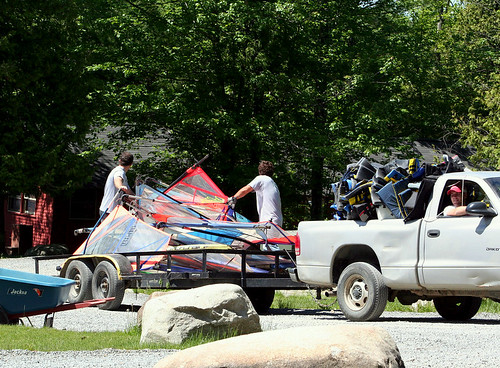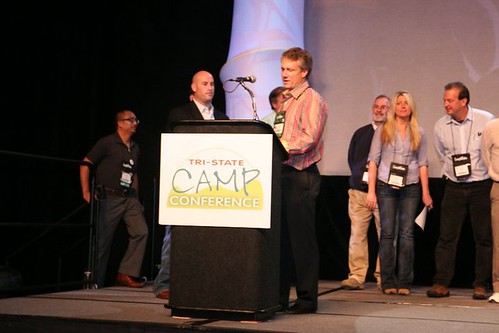For camp directors, July and August are hectic, exciting, fun-filled and challenging months.
So what do we do the rest of the year? The question should be: What don’t we do? Camp directors work as hard in the “off-season” as they do during actual camp sessions. Some of it is visible to campers, parents and staff members – but much of it no one ever sees.
The old days – when camp directing was a summer job for teachers – are long gone. Camps today run 24/7/365. I know I speak for my fellow camp directors when I say: We wouldn’t have it any other way.
Here are just a few tasks that demand our attention, beginning the moment the last bus pulls out of the parking lot.
 Closing down camp. Equipment must be put away, docks pulled in, cabins and kitchens cleaned. Winterization begins in August.
Closing down camp. Equipment must be put away, docks pulled in, cabins and kitchens cleaned. Winterization begins in August.
Construction begins on new projects we, and many camps, do each year. There are buildings to be built, courts to be resurfaced, roofs to be re-shingled…the list is endless. This is exciting stuff: planning, building and getting new facilities, cabins and program areas ready for the following summer! Returning campers and staff love “being in the know,” and hearing what’s new and improved for the coming season.
Camper recruiting and retention. Working with families is a fun process. We arrange meetings, talk by phone and email, get together – and we do it more than once. Camp/family relationships are very important, and ongoing. You may be surprised to learn that this winter, we’re already talking with families about their 2012 plans.
Camping conferences. These are where we learn about everything from insurance regulations and ADHD research to cool new foods and safe new beds. We meet our colleagues, share ideas, and get re-energized about the upcoming summer. 
Leadership meetings. Like many camps, our full leadership staff gets together twice a year. We review the past season, prepare for the next, and constantly take stock of who we are, where we’ve been and where we’re going.
Program planning. We spend 10 months getting ready for a 2-month special event. From scheduling trips to making sure the daily routine does not become a rut, we plan every detail. Longer-term planning includes major building projects.
Meals. The food service calendar is incredibly complex. From the first dinner in late May for 25 people through late June when 750 folks suddenly need three meals a day, snacks, nite-bites, canteen, OD dinners, cookouts and more… the food service staff is crucial. Training the staff, planning menus and getting meal counts right takes a ton of off-season “prep work.”
Everything else. Here are a few of the thousands of items: making a laundry plan. Writing and sending out newsletters.Reserving buses.Distributing DVDs. Revising our staff handbooks and training sessions.Renewing all necessary certifications. Coordinating yearbooks. Updating technology. Tracking medical mailings. Writing blogs.
Our goal as camp directors is to control as much as we can when campers and staff are home – so that when they’re at camp we can devote as much time, energy and care to them as we can.
Now, if you’ll excuse me, I’ve got a phone call to answer. An email to respond to. And a potentially great new counselor waiting to be interviewed.
Jem Sollinger
Director, Camp Laurel

